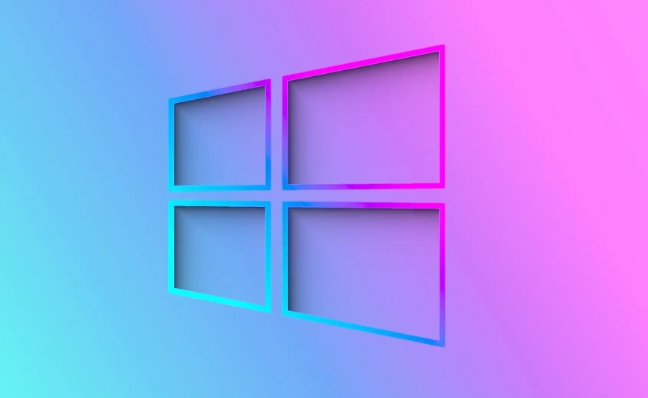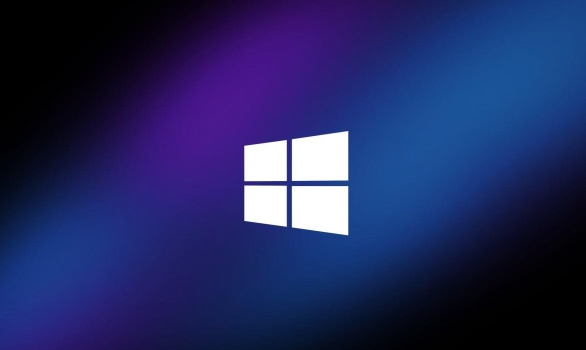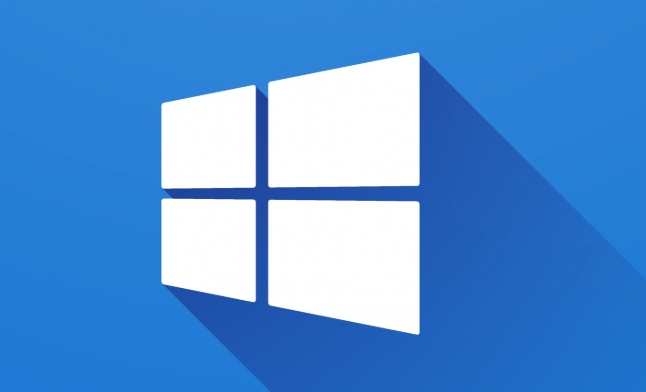Get the latest Windows 11 ISO through Microsoft's official download page: access the section to create installation media, download the Media Creation Tool (MCT), press Shift F10 to open the command prompt, enter setup.exe /downloadinstalleronly, and wait for the download to complete. The ISO file will be saved in the specified path of the system. 2. Use third-party mirror aggregation websites (such as UUP Dump, Windows Latest) to select language, architecture, and version downloads, but verify the source reliability, file hash value and digital signature. 3. Check if the ISO contains the latest updates: Check the system version number, run Windows Update online after installation, or use the DISM tool to integrate the latest cumulative updates. It is recommended to use the first official method to ensure security first. If you frequently create system images, you can be familiar with the UUP process for greater flexibility.

If you want to obtain the latest Windows 11 ISO file containing all updates, it is actually not complicated, but you need to pay attention to the official channels and the correct methods. Microsoft will release updated ISO images regularly, but not everyone knows how to find it.

1. Get it through Microsoft's official download page
Microsoft provides a public page that allows you to directly download the latest Windows 11 ISO files, including most published updates:

- Go to the Windows 11 download page
- Select Download tool now under the Create Installation Media section
- Actually, you don't need to run this tool, but you can extract ISO through the command line after downloading.
Operation details:
- Download Media Creation Tool (MCT) and run
- Don't click "Upgrade this computer now", but press
Shift F10to open the command prompt - Enter
setup.exe /downloadinstalleronlyto enter - After waiting for the download to complete, the ISO file will be saved in your system (the path is usually
C:\$Windows.~BT\Sources\install*.wimor similar)
Although this method is a bit confusing, it can ensure that you get an official image with Microsoft signature and cumulative updates.

2. Use third-party mirror aggregation website (use with caution)
Some websites will organize various versions of ISO officially released by Microsoft, such as:
These sites package Microsoft's "Universal Update Platform" (UUP) content into a complete ISO file. You can choose according to language, architecture (x64/x86), version (such as Home, Pro).
Notes:
- Be sure to confirm whether the source is credible, and do not download unknown seeds or cracked versions
- It is recommended to use UUP Dump with higher transparency platforms
- Be sure to verify the file hash value and digital signature after downloading
This method is suitable for users who cannot obtain ISO with MCT, such as ISOs that require a specific language or older version of the ISO.
3. Check if the ISO contains the latest updates
Even if you get a Windows 11 ISO, there is no guarantee that it is up to date. It is recommended to check the following points:
- Check the system version number in the mirror (can be seen in "System Information")
- Connect to the Internet as soon as possible after installation, run Windows Update to confirm whether there are any updates
- If you are deploying multiple devices, it is best to manually integrate the latest cumulative updates after installation (use the DISM tool)
Sometimes the official downloaded ISO may lag behind for one or two weeks, and you need to make up for the update package yourself.
Basically these are the methods. The most important thing in obtaining an ISO with updates is that the channels are formal and the process is controllable. If you only reinstall the system occasionally, it is recommended to use the first official tool method; if you often do system mirroring, then getting familiar with the UUP process will be more flexible.
The above is the detailed content of How to get the latest Windows 11 ISO with all updates. For more information, please follow other related articles on the PHP Chinese website!

Hot AI Tools

Undress AI Tool
Undress images for free

Undresser.AI Undress
AI-powered app for creating realistic nude photos

AI Clothes Remover
Online AI tool for removing clothes from photos.

Clothoff.io
AI clothes remover

Video Face Swap
Swap faces in any video effortlessly with our completely free AI face swap tool!

Hot Article

Hot Tools

Notepad++7.3.1
Easy-to-use and free code editor

SublimeText3 Chinese version
Chinese version, very easy to use

Zend Studio 13.0.1
Powerful PHP integrated development environment

Dreamweaver CS6
Visual web development tools

SublimeText3 Mac version
God-level code editing software (SublimeText3)

Hot Topics
 macOS installer is damaged and can't be used
Jun 28, 2025 am 12:01 AM
macOS installer is damaged and can't be used
Jun 28, 2025 am 12:01 AM
When you encounter the prompt "macOS installer is corrupted and cannot be used", the problem is usually not that the installation package itself is corrupted, but that there is an error in the verification mechanism or storage method. 1. Re-download the macOS installer, and priority is obtained from Apple's official channels to ensure integrity; 2. Turn off the installation verification in SIP, enter the csrutildisable command through the terminal and temporarily close the verification and restart the installation; 3. Check whether the USB boot disk is made correctly. It is recommended to use the createinstallmedia command and ensure that the USB disk format is MacOS extension; 4. Correct the time and date settings, adjust the time through the date command in the recovery mode to avoid misjudgment of the certificate expiration. Most of them are after completing the above steps.
 How to partition hard drive for Windows installation
Jun 27, 2025 pm 02:27 PM
How to partition hard drive for Windows installation
Jun 27, 2025 pm 02:27 PM
Partitioning is crucial to installing the system. Good partitioning can improve the system operation efficiency and data management convenience. First of all, you need to know that there are up to 4 main partitions, and logical partitions are required if there are more than UEFI. The new computer recommends that the GPT format be started with UEFI, and the old machine uses MBR; the system disk is reserved at least 60GB. It is recommended that home or office users be divided into 2 to 3 zones: system disk (60 to 100GB for disk C), data disk (remaining space for disk D), optional backup/tool ??disk (approximately 50GB for disk E), dual systems require additional partitions. During installation, operate the partition on the "Custom Installation" page, and be careful to delete the old system partition to avoid confusion. In terms of details, the default NTFS format is maintained, the SSD is turned on AHCI mode, partition first and then install the system, and disk management can be used to adjust the partition size but avoid it.
 macOS installer won't accept my password
Jun 29, 2025 am 12:14 AM
macOS installer won't accept my password
Jun 29, 2025 am 12:14 AM
The answer to the question is that the password error prompt may be caused by keyboard layout, case recognition, or installer source. The macOS installation interface uses an American English keyboard by default. The input of non-English keyboards may not match. It is recommended to switch layouts or avoid special characters; the password is case-sensitive, and it is recommended to check the CapsLock status or try all lowercase; if the installer comes from another Mac, you need to enter the Mac password to make the installer; you can also try to re-download the installer through recovery mode, confirm the administrator account identity, or format the disk with disk tools first.
 How to dual boot Windows 11 and Ubuntu
Jul 01, 2025 am 12:08 AM
How to dual boot Windows 11 and Ubuntu
Jul 01, 2025 am 12:08 AM
When installing dual systems, you need to pay attention to partitioning, installation order and BIOS settings. 1. Partition preparation: Use disk management tools to compress at least 25GB (50GB or more) of unallocated space to Ubuntu without formatting; 2. Make a boot U disk: Use Rufus to write Ubuntu ISO to at least 8GB U disk; 3. BIOS settings: Restart and enter the BIOS (usually press F2, Del or Esc), turn off SecureBoot, and set the U disk as the first boot item; 4. Install Ubuntu: Select "Somethingelse" custom partition, create a new ext4 mount point/ and occupy the remaining space, and build a swap partition equal to the memory size, boot and add
 What is the difference between macOS Recovery and Internet Recovery?
Jul 02, 2025 am 12:24 AM
What is the difference between macOS Recovery and Internet Recovery?
Jul 02, 2025 am 12:24 AM
macOSRecoveryisabuilt-inrecoverysystemonahiddenpartitionofyourMac’sstartupdisk,providingtoolslikeDiskUtility,Terminal,andmacOSreinstallation.1.Itloadsquicklyfromlocalstorage.2.Requiresafunctioninginternaldrive.3.ToolsincludereinstallingmacOS,repairin
 Can I use my Windows 7 product key to activate a new Windows 10 installation
Jul 02, 2025 am 12:15 AM
Can I use my Windows 7 product key to activate a new Windows 10 installation
Jul 02, 2025 am 12:15 AM
No,youcannotdirectlyuseaWindows7productkeytoactivateWindows10.1.Windowsproductkeysareversion-specific,soaWindows7keyonlyworksforWindows7.2.IfyourPCwasupgradedfromWindows7toWindows10beforesupportended,itmayhaveadigitallicenselinkedtothehardware,allowi
 How to install Windows 10 in VirtualBox
Jun 30, 2025 am 12:02 AM
How to install Windows 10 in VirtualBox
Jun 30, 2025 am 12:02 AM
The key steps to install Windows 10 to VirtualBox are as follows: 1. Prepare VirtualBox, Windows 10 ISO images and system resources; 2. Create a virtual machine and set the name, type, memory and virtual hard disk; 3. Mount the ISO file and start the installation process; 4. After the installation is completed, the enhancement function expansion package is inserted to improve performance and operating experience. The entire process requires attention to hardware compatibility, BIOS settings and installation of necessary dependencies to ensure smooth installation.
 Windows 10 installation stuck on logo
Jul 06, 2025 am 12:01 AM
Windows 10 installation stuck on logo
Jul 06, 2025 am 12:01 AM
When booting the computer and logging in the Windows 10Logo interface is usually not damaged by hardware, but rather an error in system file loading. 1. Wait for 15 to 30 minutes first to confirm whether it is "fake death". If there is no progress, force restart; 2. Force shut down three times to enter the recovery environment, try to start repair or enter safe mode to troubleshoot driver and software conflicts; 3. Check the hard disk bad channel, clean the memory gold fingers and replace the slot to test the hardware problems; 4. Finally, you can try to reset the computer or install the system in a brand new way to solve it, and give priority to using the official website pure ISO mirror.






